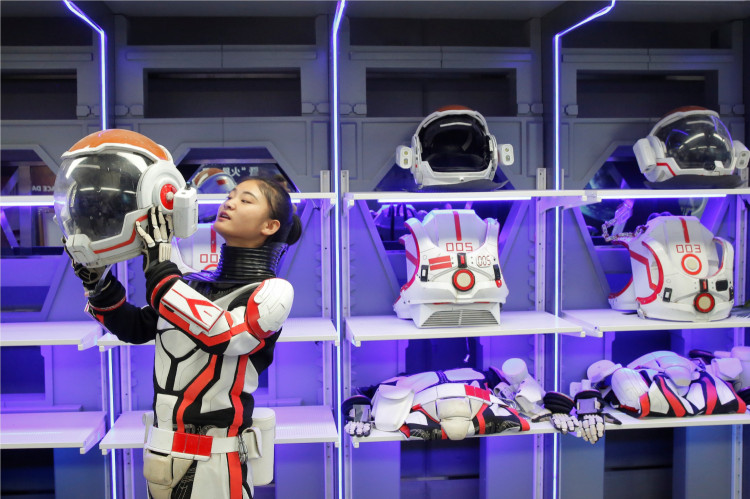China is on track to send its independent mission to Mars in mid-2020. Chinese scientists are now outfitting their Mars Rover with scientific instruments for next year's launch.
Wang Chi, director of China's National Space Science Center (NSSC), the "Mars 2020 mission spacecraft is undergoing integration". The scientists are attaching 13 separate scientific instruments to the Mars rover and orbiter to study Mar's atmosphere and geologic composition. The Space News said that China's space agency is working to become the second to successfully land a spacecraft on Mars following the failed attempts of Russia and Europe.
The orbiter has a high-resolution camera like the HiRise equipped in NASA's Mars Reconnaissance Orbiter, a medium-resolution camera, subsurface radar, mineralogy spectrometer, neutral and energetic particle analyzers, and a magnetometer.
The solar-powered rover carries ground-penetrating radar, multispectral camera, a Laser-Induced Breakdown Spectroscopy instrument and payloads for detecting the climate and magnetic environment.
One of the selected landing sites is Chryse Planitia, near NASA's Viking 1 and Pathfinder landing sites. The second landing site covers Isidis Planitia and stretches to the western edge of the Elysium Mons region. The choice of selecting the sites depends on many factors that include flight system engineering constraints and the challenges of entry, descent, and landing (EDL) on Mars, and the science goals of the mission.
Meanwhile, NASA invites the public to send their names to Mars with its Mars 2020 rover. The names stenciled on chips will represent the initial leg of human's first round trip to the Red Planet. NASA's rover is scheduled for launch as early as July 2020, landing on Mars in February 2021.
Nasa's rover weighs more than 2,300 pounds and it is tasked to search for signs of past microbial life through an analysis of the planet's climate and geology. The rover is also tasked to collect samples for its future return to Earth and pave the way for human exploration of the Red Planet.
Thomas Zurbuchen, associate administrator for NASA's Science Mission Directorate (SMD) in Washington, said that as NASA gets ready to launch this historic Mars mission, they want everyone to share in this journey of exploration. He added that it's an exciting time for NASA, as they embark on the voyage to answer profound questions about our neighboring planet, and even the origins of life itself.
NASA will offer a souvenir boarding pass and "frequent flyer" points with the opportunity to send your name to Mars.





